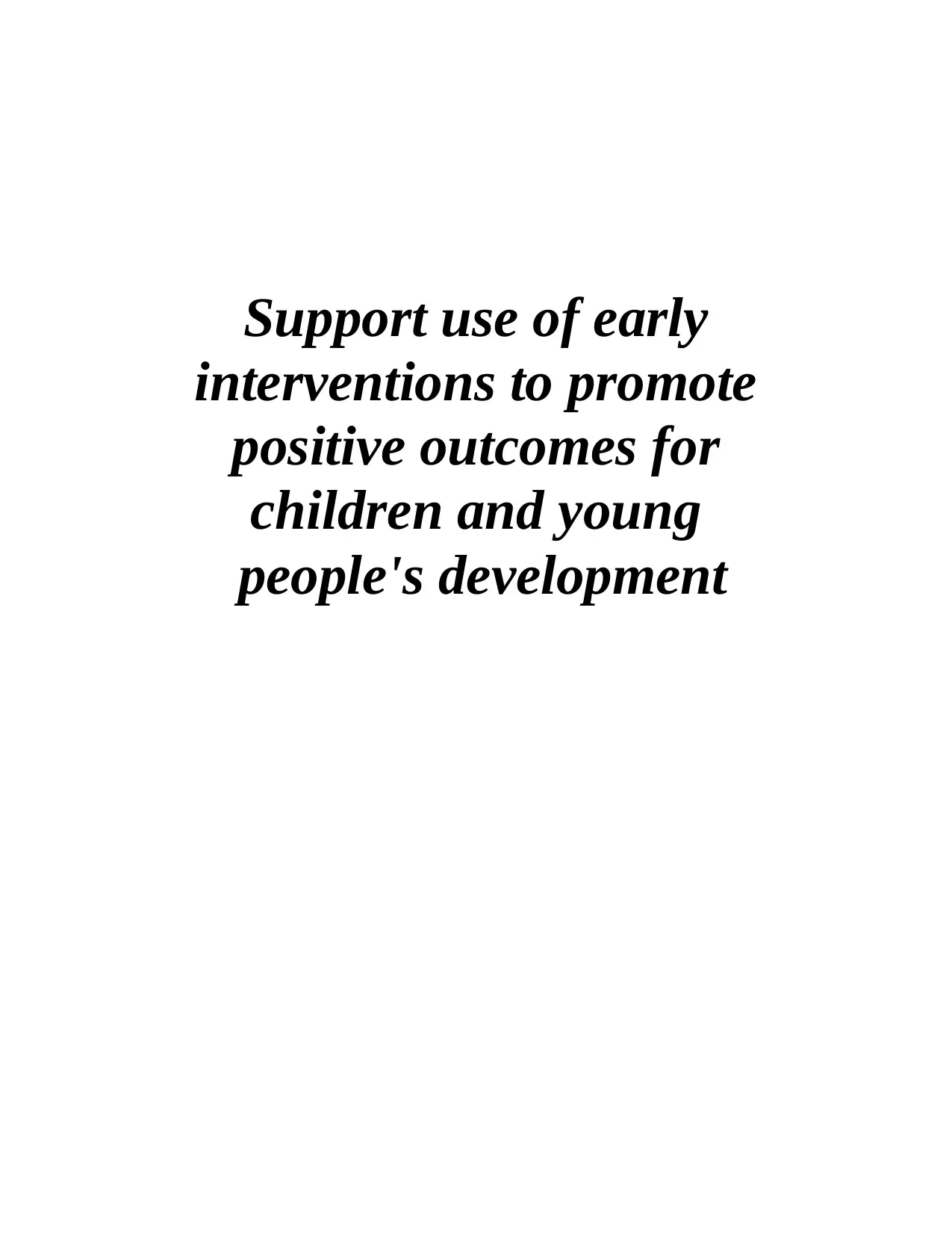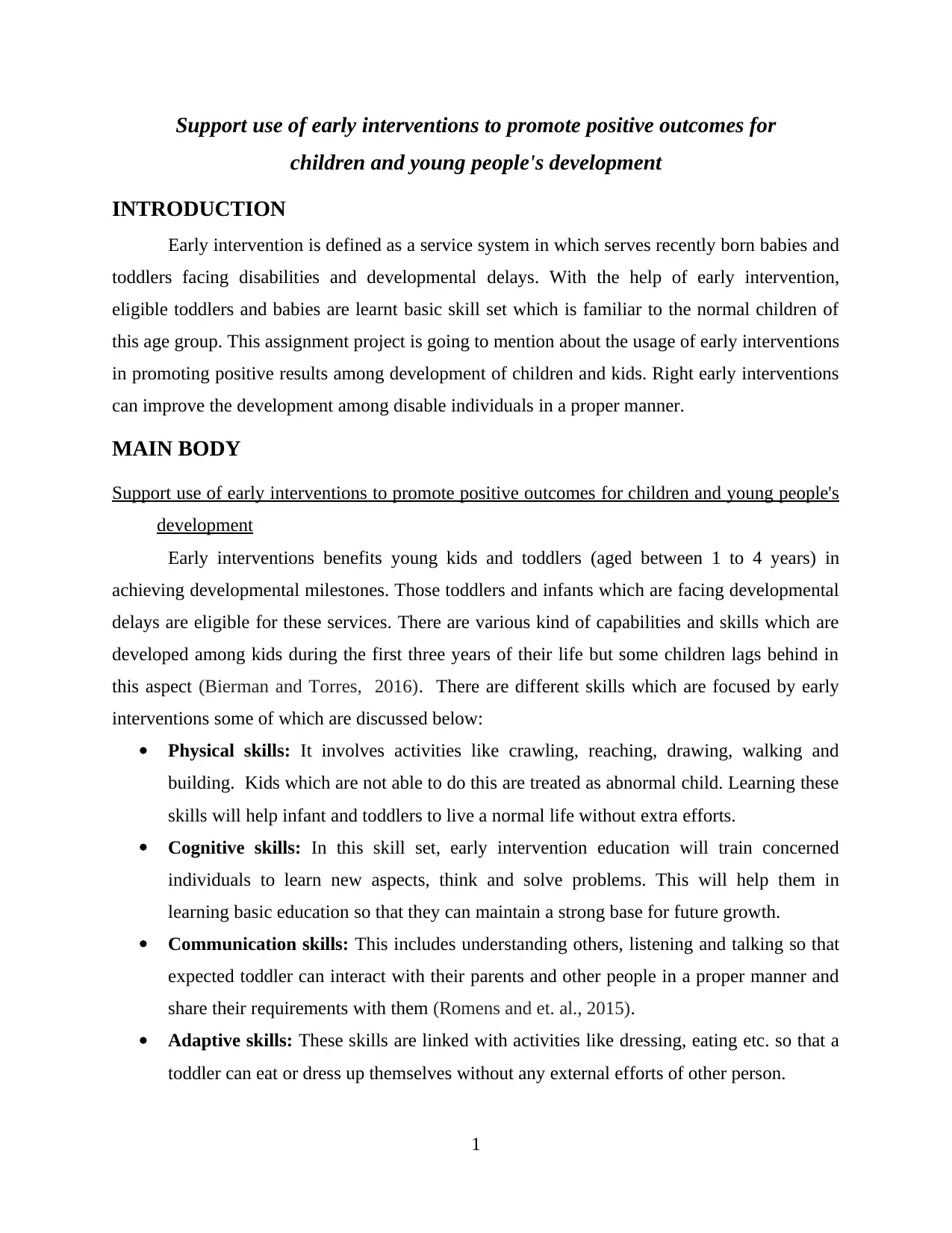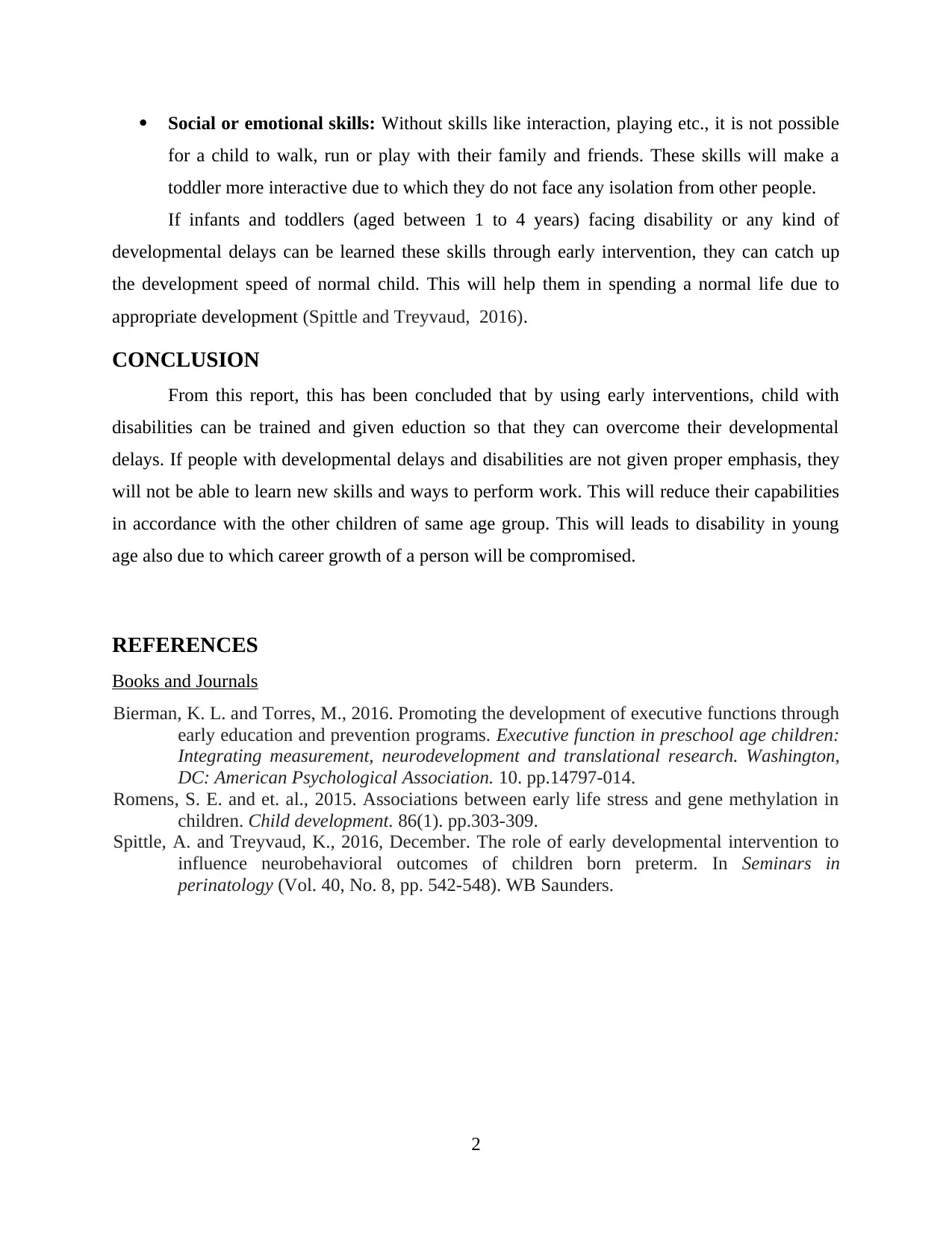Report: Early Interventions to Improve Child Development Outcomes
VerifiedAdded on 2023/01/19
|4
|784
|91
Report
AI Summary
This report examines the critical role of early interventions in promoting positive developmental outcomes for children and young people, particularly those experiencing disabilities or developmental delays. It defines early intervention as a service system targeting infants and toddlers, emphasizing the acquisition of essential skills comparable to those of their peers. The main body of the report discusses the benefits of early interventions, focusing on the development of physical, cognitive, communication, adaptive, and social-emotional skills. It highlights how early interventions enable children to overcome developmental delays and lead fulfilling lives. The report concludes that early interventions are crucial for supporting children with disabilities, providing them with the necessary skills and education to reach their full potential and avoid potential limitations in later life. The report references key academic journals to support its findings.
1 out of 4











![[object Object]](/_next/static/media/star-bottom.7253800d.svg)